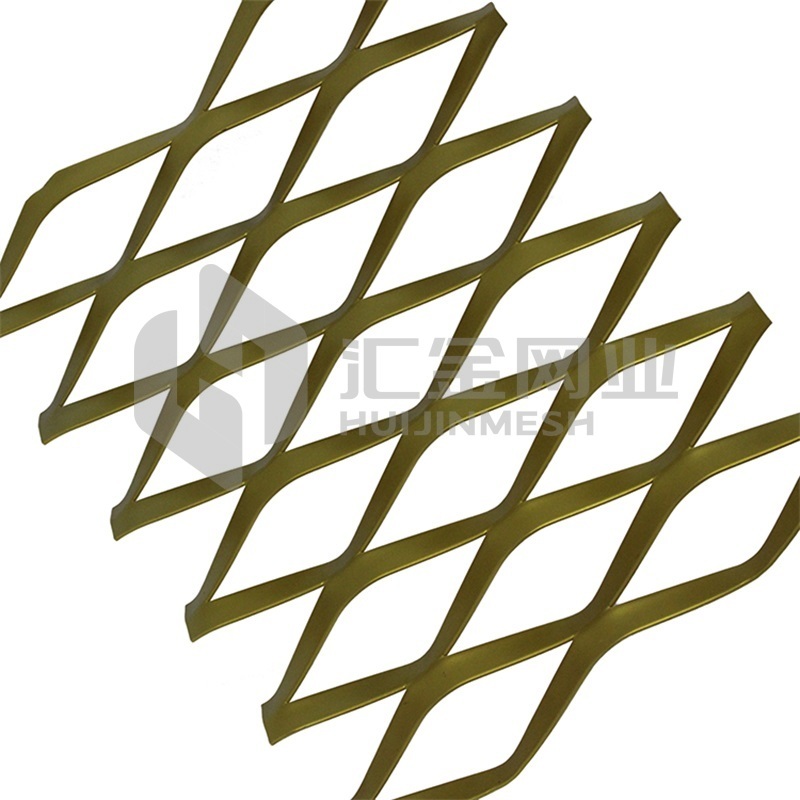
Top Factors to Consider When Selecting Architectural Expanded Mesh Suppliers
Sep 08,2025
Top Factors to Consider When Selecting Architectural Expanded Mesh Suppliers
Architectural expanded mesh products serve an integral role in modern construction and design. As an architectural element, they provide both functionality and aesthetic appeal, making them a popular choice for various applications including facades, partitions, and decorative screens. However, selecting the right supplier for architectural expanded mesh can be a daunting task. In this article, we delve into the critical factors you should consider when choosing a supplier to ensure you get the best quality products for your architectural projects.
Understanding Architectural Expanded Mesh
Before diving into the factors to consider, it’s essential to understand what architectural expanded mesh is and its benefits. Expanded mesh is created by cutting and stretching a sheet of metal into a mesh pattern, resulting in a lightweight yet strong material that can be used in numerous applications.
Benefits of Using Architectural Expanded Mesh
- **Versatility**: Architectural expanded mesh can be utilized in diverse settings such as commercial buildings, residential spaces, and public infrastructure.
- **Aesthetic Appeal**: The unique designs available enhance the visual impact of structures, allowing for creative solutions that can be tailored to specific design themes.
- **Durability**: Made from robust materials, expanded mesh is resistant to environmental factors, making it suitable for both indoor and outdoor applications.
- **Cost-Effective**: Its lightweight nature can reduce transportation and installation costs, making it an economical choice for large-scale projects.
1. Quality of Materials Used
The first factor to consider when selecting an architectural expanded mesh supplier is the quality of materials they use. The durability and longevity of the mesh depend significantly on the raw materials. Opt for suppliers who utilize high-grade metals such as stainless steel, aluminum, or galvanized steel. These materials not only ensure durability but also resist corrosion, rust, and other forms of deterioration.
2. Range of Products Offered
A diverse range of product offerings is crucial. Look for suppliers that provide various mesh patterns, hole sizes, and thicknesses. This variety allows you to choose the right product for your specific architectural needs. Furthermore, suppliers who offer custom fabrication services can tailor solutions that align with your design vision.
Customization Options
Customization options are a significant advantage. Suppliers who can modify dimensions, shapes, and finishes to meet your project specifications add value. Ensure that the supplier can accommodate any unique requirements you might have.
3. Supplier Reputation and Experience
Evaluating the reputation and experience of a supplier is vital. Research their history in the industry, customer reviews, and case studies. A well-established supplier with a proven track record is more likely to provide reliable products and services.
Industry Certifications and Awards
Check for industry certifications and any awards the supplier may have received. Certifications indicate adherence to quality standards, while awards reflect recognition from peers in the industry for excellence in products and services.
4. Customer Service and Support
Exceptional customer service can significantly enhance your experience with a supplier. Evaluate their responsiveness to inquiries, willingness to assist with technical questions, and after-sales support. Suppliers who prioritize customer service will ensure your project runs smoothly and efficiently.
Technical Expertise
A supplier with technical expertise can offer valuable insight into selecting the right product for your specific needs. They should be able to provide advice on installation, maintenance, and best practices for using expanded mesh effectively in your projects.
5. Pricing and Value for Money
While cost should not be the sole factor in your decision, it remains an important consideration. Compare pricing among suppliers, but also factor in the quality of materials and services provided. Often, the cheapest option can lead to higher costs in the long run due to inferior products.
Understanding Total Cost of Ownership
Consider the total cost of ownership instead of just the upfront price. This includes installation costs, maintenance, and the expected lifespan of the product. Investing in high-quality expanded mesh may initially cost more but can result in savings over time.
6. Delivery and Lead Times
Timely delivery is crucial for project management. Assess the supplier’s lead times and reliability in fulfilling orders. Suppliers who can meet tight deadlines without compromising quality should be prioritized.
Logistics and Shipping Options
Inquire about the logistics and shipping options available. Suppliers who can offer flexible shipping arrangements may save you time and money.
7. Sustainability Practices
With an increasing focus on sustainability in construction, it is essential to consider the environmental impact of your materials. Suppliers who implement sustainable practices in their production processes demonstrate a commitment to reducing their carbon footprint.
Recyclability of Materials
Choose suppliers who use recyclable materials or offer products that can be recycled at the end of their life span. This not only supports your sustainability goals but can also appeal to environmentally-conscious clients.
8. Portfolio and Case Studies
A supplier’s portfolio showcases their previous projects and capabilities. Reviewing case studies can provide insight into how their expanded mesh products have been used effectively in various applications.
Client Testimonials
Client testimonials offer real-world insights into the supplier's reliability and quality of service. Do not hesitate to ask for references or browse online reviews to gauge the experiences of other customers.
FAQs
1. What is architectural expanded mesh used for?
Architectural expanded mesh is commonly used for facades, screens, partitions, ceilings, and decorative applications in both commercial and residential settings.
2. How do I determine the right type of expanded mesh for my project?
Consider factors such as design requirements, load-bearing capabilities, aesthetic preferences, and environmental conditions when choosing the appropriate type of expanded mesh.
3. What materials are used to make architectural expanded mesh?
Architectural expanded mesh is typically made from metals like stainless steel, aluminum, and galvanized steel, known for their strength and corrosion resistance.
4. Can I customize architectural expanded mesh products?
Yes, many suppliers offer customization options, allowing you to adjust dimensions, hole sizes, and finishes to meet your specific project requirements.
5. How can I ensure timely delivery of my expanded mesh order?
Select suppliers with a proven track record of on-time delivery and clear communication regarding lead times and shipping options.
Conclusion
Selecting the right architectural expanded mesh supplier can significantly impact the success of your projects. By considering factors such as quality, product range, reputation, customer service, pricing, delivery times, sustainability practices, and supplier portfolios, you can make an informed decision. Remember that a reliable supplier will not only provide high-quality materials but also support you through every step of your project, ensuring a seamless experience. Choose wisely to enhance both the functionality and aesthetics of your architectural designs.






